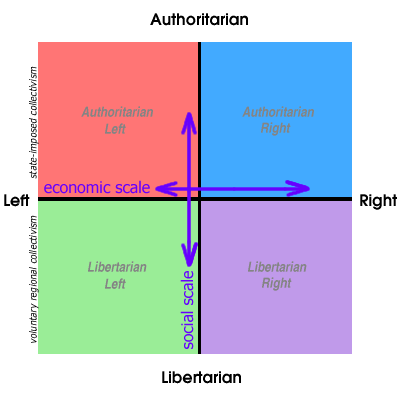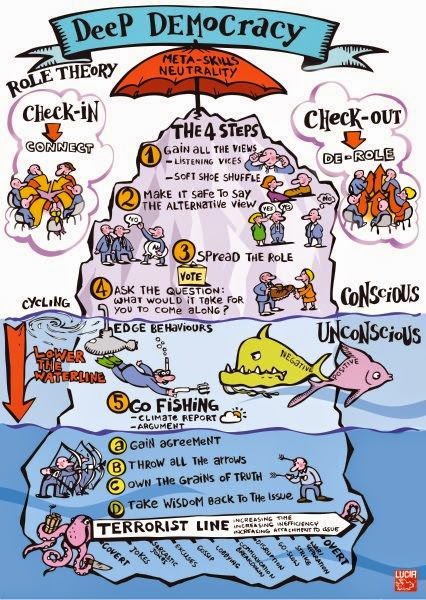Paradigm Shift
On the 15th of October 2011 the Occupy 'movement' set up camp on the Beursplein in Amsterdam. As in most places, the protest got a bit of publicity and then became a small local row, largely ignored by all but the most refined truth seekers on the one hand and the absolute gutter-press on the other. For those closely following the movement, it did give an interesting insight into deft political manoeuvring but for the rest, it was back to business as usual.
That is not a pity, it's actually missing the point. The world has changed, almost everyone now knows that the 'system'* we have, will (and probably should) fail at some point. So, what to expect?
First of all, I put 'movement' in my first sentence in inverted commas, because I don't think that seeing this as another group of demonstrators actually covers it. Pretty much everyone I talk to has a feeling that something is awry, only a small number of those are actually doing something with that feeling, like demonstrating. Most people are not doing anything at all about it.
I want to describe the shift in paradigm on a different scale than the traditional left-right scale that is usually used to depict political parties. An often used method is to add a scale, making a political spectrum. Until now, this has been the main way of understanding people's political views.
The thing that appears to be a problem here is that usually two axes count. For example, Authoritarianism vs Libertarianism on one scale and Collectivism vs Individualism on the other. There are even 3D models, trying to incorporate more axes, but somehow the paradigm shift remains invisible. (Go to 4 dimensions?)
i.e.:

On the one hand, these movements are extremely collectivist - everything belongs to everyone, everything that gets done is for the group, by consensus or consent.
However, looking at the members of these movements, they are extreme on individualism too. More important than being paid, Linux communities honour those that are most active, clever and productive. Rather than punishing eccentricity, Occupy members are only uniform in how much the members stand out from the crowd and each other.
For some reason we seem trained to think that Competition is the same as Freedom, whereas Cooperation is the same as Homogeneity.
So, what will happen as more people shift their views 'out' of the traditional spectrum?
If the boats in the race were actually to avoid getting in each other's way and to be rewarded for that, if the 'winner' was the one that helped the most others to go faster, regatta sailing would be very different (and perhaps rather boring). Collectively, on average, the boats would be faster.
Life, as opposed to sail-boat racing, is allowed to be focussed on other things than 'getting there first'. I honestly believe that it is possible to create a money system that will reward those that do the most for their group. Meritocracies like Open Source communities already work this way, they just don't have an accounting system.
In biology, 'survival of the fittest' is now mostly thought of in terms of the collective success of a series of genes: groups of monkeys pass on more genes when they cooperate than when they directly compete. The paradigm shift seems to be the realisation that competition is good and that cooperation is also good - that they are not different ends of a scale.
*system is probably not a very good word for this, as it implies deliberate thought on the part of the designer(s).
That is not a pity, it's actually missing the point. The world has changed, almost everyone now knows that the 'system'* we have, will (and probably should) fail at some point. So, what to expect?
First of all, I put 'movement' in my first sentence in inverted commas, because I don't think that seeing this as another group of demonstrators actually covers it. Pretty much everyone I talk to has a feeling that something is awry, only a small number of those are actually doing something with that feeling, like demonstrating. Most people are not doing anything at all about it.
I want to describe the shift in paradigm on a different scale than the traditional left-right scale that is usually used to depict political parties. An often used method is to add a scale, making a political spectrum. Until now, this has been the main way of understanding people's political views.
The thing that appears to be a problem here is that usually two axes count. For example, Authoritarianism vs Libertarianism on one scale and Collectivism vs Individualism on the other. There are even 3D models, trying to incorporate more axes, but somehow the paradigm shift remains invisible. (Go to 4 dimensions?)
i.e.:

Individualism vs. Collectivism: the false dichotomy.
To understand where the problem is, I started to consider why things like open source software, Peer to Peer activities and the Occupy/DRY/TTS movements are so hard to spot on this scale. The Libertarian vs Authoritarian scale is easy, these people hate authority. This is why trade unions were very firmly asked to leave the protest in Amsterdam, why Microsoft is seen as evil by many Linux programmers and why ACTA is seen as a problem in the Peer to Peer world. No, the problem is the other scale.On the one hand, these movements are extremely collectivist - everything belongs to everyone, everything that gets done is for the group, by consensus or consent.
However, looking at the members of these movements, they are extreme on individualism too. More important than being paid, Linux communities honour those that are most active, clever and productive. Rather than punishing eccentricity, Occupy members are only uniform in how much the members stand out from the crowd and each other.
For some reason we seem trained to think that Competition is the same as Freedom, whereas Cooperation is the same as Homogeneity.
So, what will happen as more people shift their views 'out' of the traditional spectrum?
Cooperation and Merit
As a sailor, I know the meaning of the rich get richer. The way we have constructed our economic system, especially in terms of money, means that work now is rewarded with 'future value'. In a sailing regatta it means that all the advantages you get in a race that put you ahead of the pack, pay back with interest later on. The reason is, that as you move ahead of your opponents, they are less able to slow you down and start to battle it out amongst themselves. You don't actually go faster, your opponents go slower.If the boats in the race were actually to avoid getting in each other's way and to be rewarded for that, if the 'winner' was the one that helped the most others to go faster, regatta sailing would be very different (and perhaps rather boring). Collectively, on average, the boats would be faster.
Life, as opposed to sail-boat racing, is allowed to be focussed on other things than 'getting there first'. I honestly believe that it is possible to create a money system that will reward those that do the most for their group. Meritocracies like Open Source communities already work this way, they just don't have an accounting system.
In biology, 'survival of the fittest' is now mostly thought of in terms of the collective success of a series of genes: groups of monkeys pass on more genes when they cooperate than when they directly compete. The paradigm shift seems to be the realisation that competition is good and that cooperation is also good - that they are not different ends of a scale.
*system is probably not a very good word for this, as it implies deliberate thought on the part of the designer(s).


Comments
Post a Comment